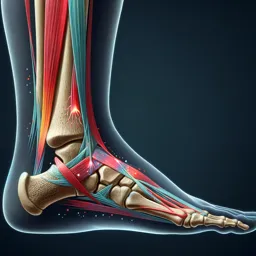Introduction
Sports injuries are a common concern among athletes and fitness enthusiasts. Effective management is crucial for a safe return to activity and long-term musculoskeletal health. Two primary categories of sports injuries—acute and chronic—require different physiotherapeutic approaches. Understanding these differences is vital for both athletes and healthcare professionals.
Acute Sports Injuries: Immediate Response and Physiotherapy
Acute injuries occur suddenly and are often the result of a single, traumatic event. Common examples include sprains, strains, fractures, and dislocations. Initial management typically follows the RICE protocol: Rest, Ice, Compression, and Elevation.
- Assessment and Evaluation: Physiotherapists play a critical role in accurately assessing the injury, determining its severity, and excluding serious complications.
- Pain Management: Techniques such as cryotherapy, gentle mobilization, and muscle relaxation help control pain and swelling.
- Early Rehabilitation: Tailored rehabilitation exercises are introduced carefully to restore movement, flexibility, and strength without aggravating the injury.
Chronic Sports Injuries: Long-Term Rehabilitation Strategies
Chronic injuries are typically the result of repetitive stress or overuse, developing gradually over time. Examples include tendinopathies, stress fractures, and runner’s knee.
- Biomechanical Analysis: Physiotherapists assess movement patterns and identify risk factors such as improper technique or muscle imbalances.
- Strengthening and Flexibility: A structured exercise program improves the affected area’s resilience and overall biomechanics, lowering the risk of recurrence.
- Pain and Inflammation Control: Modalities like ultrasound, manual therapy, and specific stretches may be used to manage symptoms during recovery.
- Return to Activity: Gradual progression and sport-specific drills ensure a safe and sustainable return to athletic activity.
Preventing Re-Injury
A key goal of physiotherapy is to prevent future injuries. Athletes are educated on appropriate warm-up routines, body mechanics, and the importance of regular flexibility and strengthening exercises. Proper footwear, equipment, and training modifications may also be recommended.
Conclusion
Physiotherapy remains a cornerstone in the effective management of both acute and chronic sports injuries. Through individualized treatment plans, education, and preventive strategies, physiotherapists empower athletes to achieve optimal recovery and continue pursuing their athletic goals with reduced risk of recurrence.































